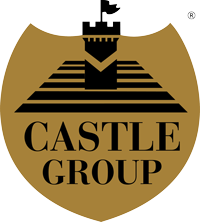Four Tips to Support Your Covenants Committee
February 22, 2022

When it comes to a homeowners’ association, the board isn’t the only group of owners who have community-wide responsibilities. Committees are just as important and integral to the functionality of your association. And while there are multiple committees, one of the most significant is the covenants committee. Their responsibilities entail overseeing the enforcement of the HOA’s most important documents: the Codes, Covenants, and Restrictions (CC&Rs), which outline the board, association, and residents’ rights. Essentially, CC&Rs describe the requirements and limitations of what you can do with your residence, protecting, preserving, and enhancing property values in the community. Other roles include monitoring compliance, reporting violations, and conducting regular reviews of the rules for accuracy and longevity, updating and changing them if necessary. Case in point, this committee plays a significant part in assuring your community’s integrity remains intact.
While your management company is typically the one enforcing association rules, a covenants committee serves a key purpose in the handling of violations. Here are our top four tips on how you can best support your covenants committee members to perform to the best of their ability:
- SET STRUCTURE & EXPECTATIONS
Set your committee up for success by clearly defining their roles and responsibilities. With achievable goals, solid objectives, effective communication methods, and reporting requirements, you maintain a level of organization that paves a clear path to improving their performance. For example, setting up a specific process for reporting violations saves your committee from any confusion, streamlining reports to your board to then carry out to community members in a comprehensive, concise manner.
- EMPOWER & EDUCATE
Boards and committees alike have regular turnover. Setting up an annual training session to educate new additions and serve as a refresh to returning leaders and members is extremely valuable. It affords your committee the opportunity to connect (or reconnect), reinforce how the operation works and align your current members with the new.
- COMMUNICATE CLEARLY & RELEVANTLY
Not all requests or violations are the same. Be sure your committee understands this and points out only those requirements specific to the task or issue at hand, adding any additional information pertinent to the request.
- ENFORCE FAIR & REASONABLE TREATMENT FOR ALL
It is essential that all community members are treated equally. Without consistency, you could cause an even larger issue, putting your leadership into question. Everyone should be held to the same standards, no exceptions, and all issues should be handled sensibly and within reason.
With an experienced management company such as Castle Group, these kinds of responsibilities would not have to fall on the board’s shoulders. Find out all the other ways Castle Group can facilitate smooth operations in your community today, request a proposal at https://www.castlegroup.com/request-a-proposal/.
Tags:

